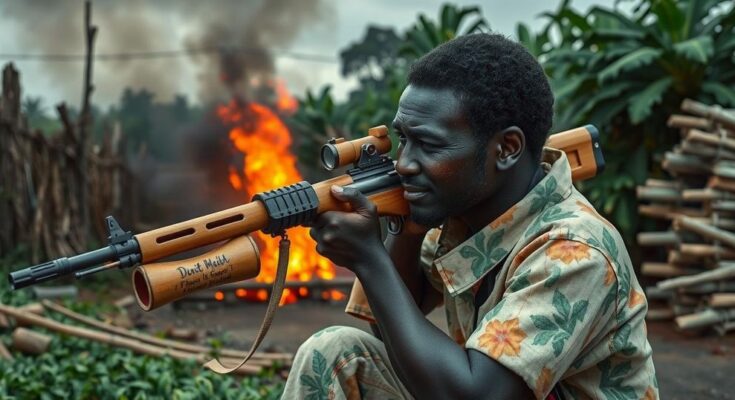The Democratic Republic of Congo’s prolonged conflict is fueled by a combination of post-colonial power struggles, ethnic tensions, competition for natural resources, and poor governance. Ongoing violence and humanitarian crises have led to the suffering of millions, with significant sexual violence and displacements affecting the population. Immediate efforts for justice, humanitarian assistance, and civil society empowerment are essential to ending the cycle of violence and achieving peace in the region.
The conflict in the Democratic Republic of Congo (DRC) arises from a history of post-colonial power struggles following its independence from Belgium in 1960. Ethnic tensions, corruption, and competition for natural resources have exacerbated the ongoing crisis, particularly in the eastern regions bordering several countries. With over one hundred armed groups currently active, factions often emerge from local militias responding to decades of unrest, each group driven by shifting allegiances based on economic, ethnic, and political contexts.
Governance issues are significant contributors to the unrest, rooted in poor management since independence and historical land disputes that mirror colonial practices of divide and rule, which laid the foundations for ethnic rivalries. The DRC is endowed with valuable minerals—such as coltan and gold—fueling conflict as various armed groups vie for control over these resources, often financed by the exploitation of these minerals. The legacy of Mobutu Sese Seko’s corrupt dictatorship further destabilized the nation, leading to socio-economic abandonment and rising violence.
Foreign interventions, chiefly by Rwanda and Uganda, complicate the situation, engaging in military actions tied to political motives, particularly following the 1994 Rwandan genocide. This historical context has shaped ongoing conflicts, known as the First and Second Congo Wars, leading to the emergence of numerous armed factions with pervasive crimes under international law characterizing the violence.
The impact on the Congolese population is catastrophic, characterized by rampant human rights violations, including mass killings, sexual violence, and systematic torture. The humanitarian crisis remains dire, with millions displaced and facing extreme poverty despite the DRC’s rich natural resources. As of April 2024, 7.3 million people are internally displaced, lacking access to essential services like healthcare, education, and nutrition.
To halt the cycle of violence, there must be a dedicated effort toward ensuring truth and justice for victims, providing humanitarian aid, and empowering civil society in the DRC. Creating effective accountability measures for perpetrators of human rights abuses, alongside historical acknowledgment and reparations for victims, is paramount in achieving long-term peace and stability in the region.
The Democratic Republic of Congo (DRC) experiences deep-rooted conflict stemming from post-colonial power struggles. Its history, marked by exploitation and violence, continues to influence the current humanitarian crisis. The ongoing turmoil is a complex interplay of ethnic tensions, competition over natural resources, ineffective governance, and external interventions that have compounded the suffering of the Congolese people. Understanding this context is crucial to addressing the multifaceted challenges facing the DRC today.
In conclusion, the Democratic Republic of Congo’s enduring conflicts reflect a grim legacy of colonialism, poor governance, and resource exploitation, compounded by inter-ethnic strife and foreign interference. Urgent action is needed to provide justice and humanitarian support to the affected populations, as well as to foster an environment for sustainable peace. Only through addressing these historical grievances and promoting accountability can the DRC hope to break the cycle of violence that continues to devastate its society and hinder its development.
Original Source: www.amnesty.org




